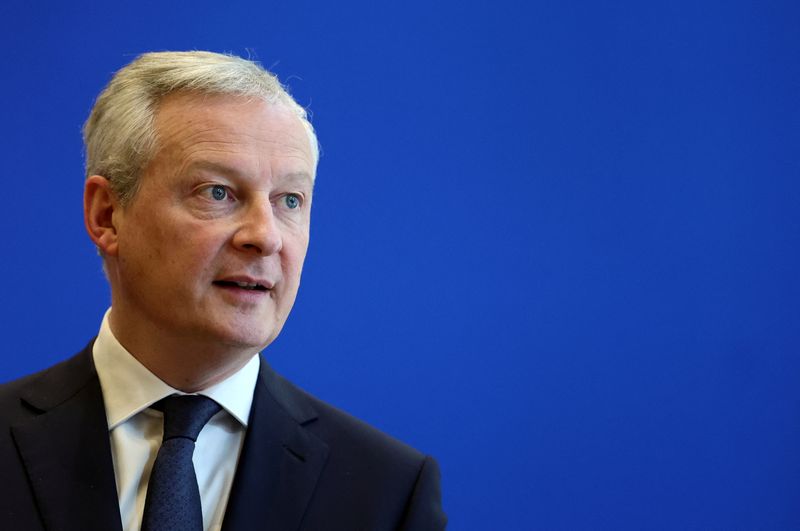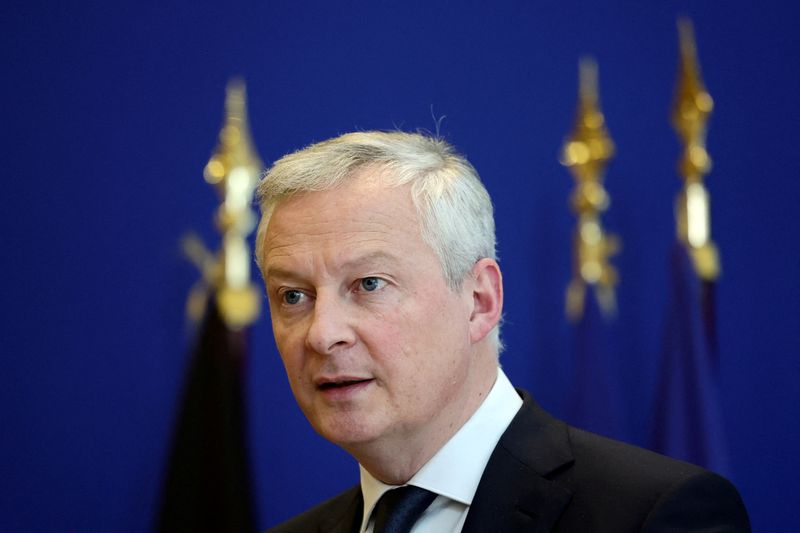PARIS (Reuters) -France posted a record trade deficit last year as imports surged on higher energy prices and Airbus exports fell, official data showed on Tuesday, casting a rare cloud over President Emmanuel Macron’s economic record.
The trade deficit in goods hit 84.7 billion euros ($97 billion) in 2021, equivalent to 3.4% of economic output, as the energy import bill swelled to 43.1 billion euros, the trade ministry said.
In December alone, the trade gap reached more than 11 billion euros in the biggest monthly shortfall between exports and imports since French customs records began in 1970.
Nearly two months from a presidential election in which Macron is widely expected to seek a second term, Finance Minister Bruno Le Maire said the deficit marked a “blemish” on Macron’s presidency which has otherwise been particularly strong on the economy.
Growth hit a 52-year high last year of 7% as that the European Union’s second-biggest economy recovered faster than expected from the coronavirus crisis.
However, the record economic activity also fuelled demand for imports while exports were hit by a slump in new aircraft shipments, although Trade Minister Franck Riester said on Tuesday that they should rebound in coming years judging by full order books.
Le Maire said that ultimately France needed the re-election of Macron in April to complete efforts to restore exporters competitiveness.
Macron, a former investment banker and economy minister, has cut various taxes paid by companies and eased France’s traditionally strict hiring and firing rules.
“There is no other solution to improve France’s external trade balance than to massively and quickly re-industrialise,” Le Maire said on France Inter radio.
While the trade deficit grew to record levels, France’s services surplus more than doubled to 36.2 billion euros last year despite still weak revenues from tourism. As the world’s top tourism destination, the sector was traditionally a reliable source of income prior to the pandemic.
With French ports picking up business from congested rivals elsewhere in Europe, transports services swung massively into a surplus for the first time since 2004, trade ministry data showed.
($1 = 0.8770 euros)
(Reporting by Tassilo Hummel and Leigh Thomas;Editing by Raissa Kasolowsky)


























